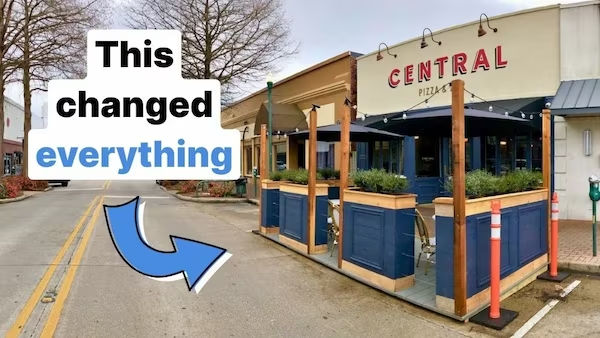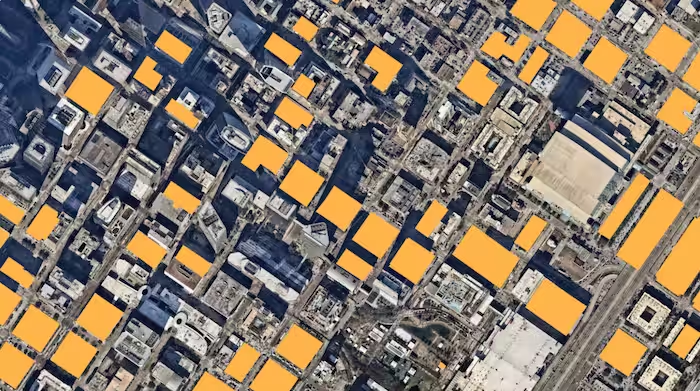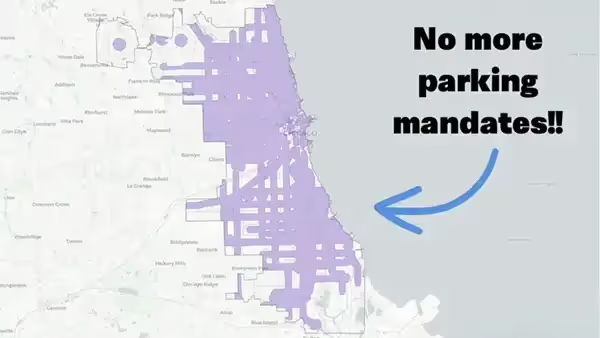End Parking Mandates & Subsidies
A Strong Town builds wealth by creating places for people to live, do business, and congregate.
But most cities have rules about parking that destroy opportunities to make these places.

Core Insights
Cities must end minimum parking requirements.

1 / 2
- Parking mandates stifle the creation of homes and businesses.
It’s about land and money. More land used for city-mandated parking means less land for much needed homes or wealth-generating businesses. And parking can be expensive to build, costing between $5,000 and $50,000 per space. When you force developers to include a minimum amount parking, you’re adding tens or even hundreds of thousands of dollars to the cost of a project.

2 / 2
- Parking mandates cost cities money.
Parking mandates don’t just affect the private development side. They also cost cities a lot of money by making destinations farther and farther apart. You end up with more streets and roads per capita, more stormwater runoff to manage, and more liabilities on the city’s books.
Latest Stories on Parking

Here’s how Lafayette, Louisiana, went from a dying downtown to #6 in the country for outdoor dining.

How a passionate group of locals cracked Nanaimo’s stubborn parking rules—and unlocked new possibilities for housing and community.

Chicago and Denver just joined a growing list of cities including Anchorage, Minneapolis, and Austin in rethinking how city space is used, and what we pay for.

A new ordinance removes costly parking requirements across most of Chicago, clearing the way for more affordable housing and business development.
Stay updated on ending parking mandates and subsidies.
Sign up to receive our email newsletter and get the latest news, ideas and insights about ending parking mandates and subsidies sent straight to your inbox.